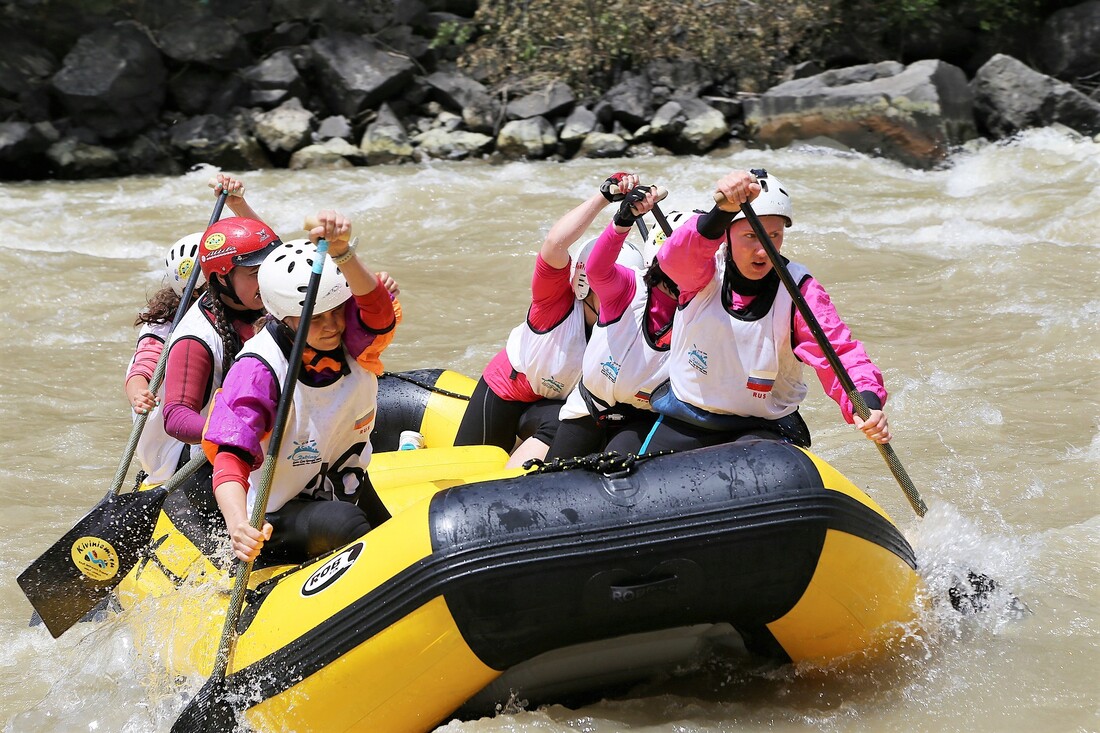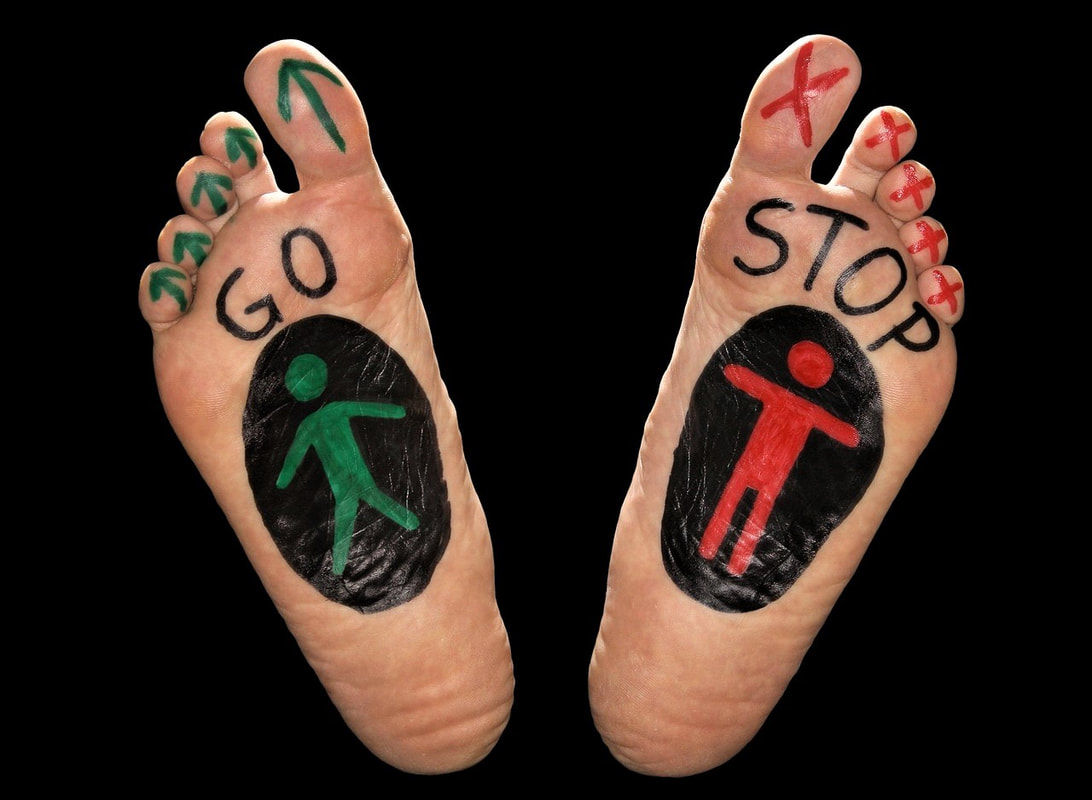|
‘If you can walk away from a landing, it’s a good landing. If you can use the plane the next day, that’s an outstanding landing.’ (Chuck Yeager) ‘I think I just crashed the plane!’ That made me laugh. We had been toying with the metaphor of flying an aircraft to think about different stages of a coaching or action learning process. My nephew, a trainee pilot, had explained to me previously how landing a plane after a flight can be the tricky part. There’s a risk that, having touched down, the plane bounces off the runway and takes off again, resulting in something like a kangaroo-effect along the runway until it finally comes to a halt. During an action learning facilitation training workshop this week, a participant guided the group successfully ‘down’ into the action stage, only inadvertently to have it take off again as she opened up to further questions for exploration. In the learning review afterwards, one of her fellow participants commented with a smile that it felt, perhaps, more like a turbulent landing than a crash into the runway. That was a relief. Yet, how to land a plane without the bumpy-bounce effect? Tony Stoltzfus in Coaching Questions (2008) offers a useful guide that focuses on three successive stages to help create a shift, from possibilities to decisions to committed actions: Could do; Want to; Will do. Could-do raises possibilities and options into the frame. Want-to touches on energy and motivation. Will-do moves towards determination and traction. We could picture this sequence as something like: What could you do? Is that a step you want to take? What will you do, by when? Stoltzfus goes on to highlight potential issues to look out for and to attend to, including ‘insurance’ and ‘equivocation’. The former involves helping a person to identify and address critical factors that could either ensure or undermine their success. The latter can be useful if a person appears to be feeling ambivalent or only superficially committed to a course of action. It’s the person’s own choice as to whether they follow-through. This is, however, about helping them to land themselves well. Examples of insurance-type questions are: ‘Are there any obstacles to getting this done?’ ‘Who else do you need to check with?’ ‘On a scale of 1-10, how confident are you that you’ll complete this step by the deadline?’ ‘What would it take to raise that to a 7, 8 or 9?’ ‘How could you change the step or the deadline to make this more realistic?’ ‘What could you do to increase your chances of getting this done successfully?’ ‘Do you need an accountability person or mechanism to help you do this?’ Examples of equivocation-type questions are: ‘Are you ready to commit to that next step?’ ‘You said you might take that next step. Is there anything holding you back?’ You said you ought to do this. What would make it something you’ll do because you really want to do it?’ ‘You sound like you're procrastinating. You can choose to do this or not to do it. What will you do?’ ‘Is there anything we need to discuss or change about the step you’re considering that would help you to make a more decisive choice?’ Stoltzfus ends by offering some tips on tentative language to listen out for at the action phase that could indicate a person is equivocating, or hasn’t yet reached a decision point: ‘I could…’ ‘I might…’ ‘I’m thinking of…’ ‘One possibility…’ ‘Maybe I should…’ ‘I ought to…’ ‘I’d like to…’ ‘Someday…’ It’s analogous to hovering above the runway without yet having achieved touch-down. Try: ‘How do you feel, here and now, as you consider each option?’ ‘If you were to land this, what would you need?’ [See also: A good ending; Get a grip; Grit]
18 Comments
‘When you wish upon a falling star, your dreams can come true. Unless it’s a meteorite hurtling to the earth which will destroy all life. Then you’re pretty much hosed no matter what you wish for. Unless it’s death by meteor.’ (Despair.com Demotivators) I was surprised to return to my desk and find 6 people waiting in a queue to complain. I’d worked hard on my all-staff presentation and thought I’d handled it well. My task had been to present the results of an annual staff survey: the good, the bad and the ugly. I’d attempted to present a view that, even in those areas where scores were low, such scores represented implicit positive hopes and aspirations. If, for instance, someone had given a low score for quality of management, it was because good management matters to them, even if their desires and expectations were unmet. My agitated colleagues saw it differently. They felt as if I had spun the results, put a positive spin on the ugly, with a result that those staff who had already been angry, frustrated and disappointed now felt even more strongly that their voices were ignored, dismissed and unheard. Still taken aback, I tried to defend myself, arguing that it wasn’t spin but a matter of perspective. They weren’t having it, and they pushed back even harder than before. I was left reeling and confused. In my mind, I had presented the survey results with integrity. I couldn’t understand their hurt and angry responses. This was some years ago and I remember vividly, some days later, driving into work when a penny dropped suddenly. It occurred to me that, when a person describes a glass as half-empty, it’s not simply a matter of perspective but one of sentiment and emotional experience too. By presenting a glass as half-full, I had inadvertently failed to acknowledge and represent an authentic expression of how they were feeling. I returned to my colleagues and shared this somewhat embarrassingly-belated self-revelation – with which they wholeheartedly agreed. They accepted my apology with grace. 'Growth occurs when individuals confront problems, struggle to master them, and through that struggle develop new aspects of their skills, capacities and views of life.' (Carl Rogers) A common consideration we face in coaching and action learning is, when asking a question, whom the question – or indeed the answer to the question – is for. For instance, if a person is describing a scenario in sketchy terms, we may be tempted to ask them to say more about it so that we have a better picture of the situation they have in mind. If they use jargon or acronyms with which we are unfamiliar, we may ask them to explain what they mean in order to fill our information gaps. If you work in a job such as a manager, professional or consultant, this approach to asking questions may sound and feel very familiar to you. It’s probable that you are employed in such a role because you’re an expert in your field and are able, therefore, to contribute. It may be that others come to you with tricky problems in the hope that you can solve them for them. It’s likely that you will ask questions that help ensure you’re able to offer an appropriate diagnosis, prescription or solution. Now turn this on its head. In coaching and action learning, I don’t need to know very much at all about a situation another person is talking about. My role is to help them to explore fresh avenues of thought and experience for themselves, in order to find or create their own innovative solutions. When I present this idea in training workshops, however, I often see participants look back at me with scepticism. ‘How are we supposed to pose useful questions if we don’t know anything?’ In one such workshop this week, I invited a group of online participants to engage in a simple experiment with me. I asked them to pay close attention, while I described a real challenge I’m dealing with. Before I began to say anything more about the issue itself, however, I turned off my microphone. Then, after a few minutes of speaking, I turned on my microphone again and asked them what questions they could now pose to help me think through my own issue more broadly or deeply. It was a lightbulb moment. After a few moments of silence, questions began to emerge. ‘Which aspect of this matters most to you?’ ‘If you were to be successful in moving ahead with this, what would that look like?’ ‘Which part of this is causing you greatest anxiety or concern?’ I then turned off the microphone again and spoke further. A few minutes later, microphone back on again…then another invitation for questions. The group paused again, then posed further questions to me. ‘Where are you at now in relation to your thinking about this?’ ‘How will you know if you have landed on the right decision?’ ‘What support will you need to move this forward?’ It was a powerful moment of realisation. As we reviewed together what had happened, some profound group insights emerged. ‘We didn’t get drawn into the issue with you because we didn’t know what you were talking about.’ ‘Our questions focused on you in relation to the issue, rather than on the issue itself.’ The client is the expert. My role is to help develop, release and apply that expertise to influence change. Curious to discover how I can help? Get in touch! ‘If the blade is not kept sharp and bright, the law of rust will assert its claim.’ (Orison Swett Marden) ‘Clients value moments when a (coach) listens in a way that allows them to know that they are being heard, shares a relevant reflection, or asks a question that makes it possible to see an issue from a different perspective. By contrast, the hope that (coaching) might make a positive difference may be terminally undermined by selective or inattentive listening, awkward or self-serving personal disclosures or interrogative lines of questioning.’ (Julia & John McLeod, The Significance of Being Skilful, Therapy Today, BACP, November 2022). Writing in the context of counselling and therapeutic practice (which I have taken the liberty of re-applying to coaching here), McLeod and McLeod comment that practitioners often associate skills practice with training at the start of their career, rather than with an on-going development journey throughout their career. Many of the skills themselves are common to ordinary human relationships. ‘(Coaching) skills can be understood as comprising the application of generic interpersonal and communication skills for a specific purpose.’ It's as if an effective coach takes normal skills, hones them to a very high standard, then applies them intentionally and in a focused way to enable change with-for a client. A challenge lays in how to do this well, with wisdom and discernment, given that there are so many dynamically-complex factors in a client relationship and context that can fundamentally influence what the client will experience as beneficial. ‘The implementation of a skill in a real-life situation requires a capacity to improvise in response to what is happening in the moment.’ This is where on-going critical reflection and development is so important, perhaps with a supervisor or mentor or in an action learning set. ‘By creating opportunities for revisiting deeply ingrained ways of relating to others, the process of developing (coaching) skills can be both emotionally challenging and life-enhancing…(including) a capacity to maintain skilful and responsive contact with clients in situations of emotional pressure, such as the client becoming demanding, angry with the (coach) or withdrawn.’ I agree. So – how do you stay sharp? ‘I know that I know nothing.’ (Socrates) Action Learning is an opportunity to receive questions. It’s founder, Reg Revans, advocated: ‘Swap your difficulties, not your cleverness.’ Revans’ approach was a radically different philosophy and praxis that stood in contrast to conventional didactic methods at the time. It affirms the value of not-knowing, curiosity and exploration. It facilitates a grappling with questions that have no easy answers and creating experimental solutions; without a pressure to hide from or impress peers. A transformational dimension of Action Learning is the power of vulnerability in building trust. If I model an authentic openness, a willingness to share those issues and experiences that I find most perplexing or troubling in my own work, it may invite others, in Susan Scott’s words, to ‘come out from behind (themselves) and make it real’ too – if they choose it. Stephen Covey expresses this dynamic well in his insight that, ‘Trust grows when we take a risk and find ourselves supported.’ I like the questions that Angie Bamgbose poses to herself in her insightful Action Learning blog, Race, Power and Privilege: ‘What is my gift? What am I still confused about? What have I learned? What will I do?’ It models the spirit of courage, humility and reflexivity that lays at the heart of Action Learning practice. It reminded me of guru Rick James’ opening words at an INTRAC webinar this year, looking at the future of humanitarian work internationally: ‘There is so much I don’t understand’. How do you use questions to stimulate reflection, insight and action? How do you handle personal and cultural pressures to present a front, to impress or to ‘perform’? (See also: Not-Knowing; Managing our Not-Knowing; Action Learning) At a time when geopolitical tensions between NATO-EU and Russia are on the increase and depicted starkly as such in the media, I showed a video of a Russian 'hell march' to an international group and asked them: a. What do you notice; b. How do you feel; c. What does it mean? It opened a deep conversation that emphasised the need for critical reflexivity in interpreting experiences and events. A Chinese participant looked quite disdainful and said it reminded her of similar 'propaganda parades' in her home country, designed to make people feel compliant and positive about the Communist party state. A German participant said it filled her with fear, evoking stories she had heard from elderly family members about horrors under Soviet occupation at the end of the Second World War. A UK participant, perhaps with the spirit of Brexit still reverberating fresh in the background, said she found the enforced uniformity and conformity disturbing. A Filipina participant from an Hispanic cultural background, who had lived under a repressive military dictatorship, said she liked how the soldiers were as-if dancing to a rhythm and doing something constructive that displayed positive talent. I noticed banners in the background depicting 1941, the year in which the Nazis had unleashed a war in the East that resulted in unspeakable terror and devastation. As a passionate anti-Nazi, I saw the march as an assertive symbol: a 'never-again'. We reflected on our different selective perceptions, feelings and interpretations and the profound influence of ourselves-as-filters as we look out onto the world. In a similar vein, at a Gestalt coaching training workshop last week, I posted an image on screen of a tree in wheat field with dark clouds looming overhead. I asked the group what they would notice in 3 imagined scenarios: 1. As a child, you loved to climb trees; 2. You are walking the countryside and have forgotten to bring a raincoat; 3. You and your family have had no food to eat for a week. We noticed that we notice what matters to us in the moment. Different people-groups may notice different things in the same situation, or the same person-group may notice different things in the same situation at different times. We attribute meaning based on our beliefs, values, hopes, fears and expectations. This includes personal and shared-cultural memories, emotions and imaginations. As we move ahead this year, I pray that I-we will do so with eyes wide open. What may appear to us as self-evident, real and true may reveal as much about us as who or what we observe: if we are willing to see it. What can we do to create greater critical reflexivity? How can we address blind spots and hot spots to open up fresh possibilities, address risks – and take a stance that is sound? ‘Question: Why do scuba divers always fall backwards out of the boat? Answer: Because if they fell forwards, they’d still be in the boat.’ (That meme still makes me smile). It takes me back to a recent conversation with an action learning group. We were practising a Gestalt technique of noticing use of metaphors as a person speaks, then inviting playful exploration to see what fresh insights and ideas might emerge. It has some parallels with James Lawley & Penny Tompkins’ symbolic modelling (Metaphors in Mind, 2000). Whilst thinking through an issue she was struggling with at work, one participant explained that she felt worried about ‘rocking the boat’. Picking up on the metaphor and stretching it towards a greater polarity, a peer asked, ‘How would it be if you were to sink the boat?’ Then, after she had had time to reflect and respond, another posed, ‘In that situation, what would it take to float your boat?’ In a Gestalt coaching context, I might invite the same person to enact the different metaphorical possibilities physically. We could use objects such as tables and chairs in the room to represent the boat and other significant people or situational factors, then experiment with rocking, sinking, floating or navigating through them. Doing it is very different to imagining it or talking about it. What experience do you have of working with metaphor? How do you do it? Coaching is listening for a voice. More accurately, at deeper levels, for 4 voices. Firstly, the voice of the client: his or her concerns, aspirations, thoughts and feelings. This is the traditional focus of coaching and counselling, seeking to hear the client, to listen, pay attention, help the client to hear his or her own voice more clearly. Secondly, the voice of the client’s environment: his or her background, experience and context. It’s what Gestalt calls the field. The introjects, assumptions, cultural norms and systemic constructs that shape and speak implicitly through the client’s outlook and experience. The hidden voices behind the client’s voice. Thirdly, the voice of God: revealing, guiding, challenging and consoling. The clear, confusing, mysterious voice of God who whispers in sound, in silence, through the visible and invisible. The God who is the Word, who speaks the eternal Divine language behind human language, calling us inwards, outwards, towards and beyond. And finally my own voice: my learning, intuition, experience and discernment. It’s about listening for a resonance, a dissonance, a sense of harmony with the client, with his or her world, with God. It’s an art, a science, an energetic struggle, a dance. It’s a precious and challenging call, but the potential for transformation is significant. ‘Hindsight no longer leads to foresight after a shift in context.’ (David Snowden & Mary Boone) ‘What does this new situation call for?’ is a vastly different question to, ‘What did I do last time that worked?’ I learned this the hard way. In my younger days, I led a youth and community work project in the North of England that was, by most accounts, a great success. I subsequently moved to the South of England where, instinctively, I replicated that same approach. This latter initiative was, sadly, an unmitigated failure – yet a very important way to discover that context is critical. Increasing dynamic complexity in the world means that, in many situations we now face, the past is no longer a reliable predictor of the future or sound basis for action. In contrast to earlier views that change happens sequentially and linearly with one state of play building on another, Michael Lewis argues that, ‘change may be the result of complex emerging connections that are often random.’ Significant influences can, and often do, emerge unexpectedly at any time and from left field. There are parallels at an individual level. Karen Franklin comments that for the common maxim ‘the best predictor of future behaviour is past behaviour’ to be true, ‘the anticipated situation must be essentially the same as the past situation’. Yet, when is it? Is any context really that fixed? Eleanor O’Leary reflects astutely: ‘Everything that we have learned, everything that we have experienced is carried in the present moment.’ The past is known and feels familiar. We can get stuck there. Whether dealing at macro-strategic-systemic levels or with the people, relationships and situations in front of us, learning to critique our presuppositions-from-experience has never been more crucial. A simple aide-memoire? Post an image of traffic lights on your cell phone, laptop or desk: red light - pause; amber light - reflect; green light - act. Alongside amber, ask: ‘What am I assuming?’ (This can be a difficult question to answer, owing to deep personal-cultural blind spots or defensive routines)*. Yet, to discover a way to see the past, present and future through fresh eyes is absolutely key. What techniques have you found that help you and others do this well? (*Interested to develop your own critical reflexivity and critical reflective practice? Get in touch!) ‘Good endings make sense, evoke emotions like contentment, anger, sadness, or curiosity, shift the person’s perspective or open her mind to new ideas. Good endings bring the person to some kind of destination.’ (Alex J Coyne) Lilin Lim, my sister-in-law, reads the back page of a novel first to decide whether it looks like the story is worth reading. There’s something about a good ending that can make whatever went before it feel worthwhile – the time, effort or, at times, struggle to get there. Think back to your own life and work peak experiences: e.g. birth of a child, achievement of a desired promotion or qualification, overcoming of a disability or fulfilment of a dream that, perhaps, felt hard at the time yet worked out well in the end. Conversely, think back to seminars, workshops or meetings you have taken part in that didn’t result in anything remotely meaningful to justify the investment. Academic Peter Cotterell commented satirically that, similarly, many lectures and articles can feel like, ‘a plane in the sky that takes off well yet finds itself circling in the clouds and can’t find a way to land.’ Stephen Covey said, ‘Begin with the end in mind’, a perspective that resonates well with the biblical idea of an end-revelation to draw us forward. This same principle applies in coaching and action learning. If we open a conversation with questions such as, ‘In relation to X, where do you want to be an hour from now?’ or ‘Of all the things we could spend the next hour doing together, what, for you, would make this time well spent?’, it can help ensure an explicit sense of focus and purpose from the outset – and raise into critical awareness Gary Rolfe’s movement towards an ending: the ‘Now what?’, before considering the ‘What?’ and the ‘So what?’ David Clutterbuck suggests ending this type of conversation with an invitation to the client to reflect and summarise for him- or herself, using a simple 4xI framework: ‘What are the Issues we’ve talked about; what are the Insights that you’ve had; what are the Ideas that we’ve generated; what are your Intentions now?’ It’s a consolidating technique that can enable a sense of learning and closure for the client and a transition into action. It helps to avoid the risk of a session simply...fizzling...out. Rosie Nice poses useful grounding questions: ‘Are there any other dimensions you would like to explore before moving into actions? Would it be helpful if we were to consider some questions to help you think through what actions you might take? What’s the main thing you are taking away, having had opportunity to think this through?’ Sue Murkin ends with: ‘Given what you know now, how will this impact on your work? How could you see yourself using this? What will you do now?’ How do you avoid perpetual drift or an abrupt crash landing? How do you create a good ending? |
Nick WrightI'm a psychological coach, trainer and OD consultant. Curious to discover how can I help you? Get in touch! Like what you read? Simply enter your email address below to receive regular blog updates!
|













 RSS Feed
RSS Feed